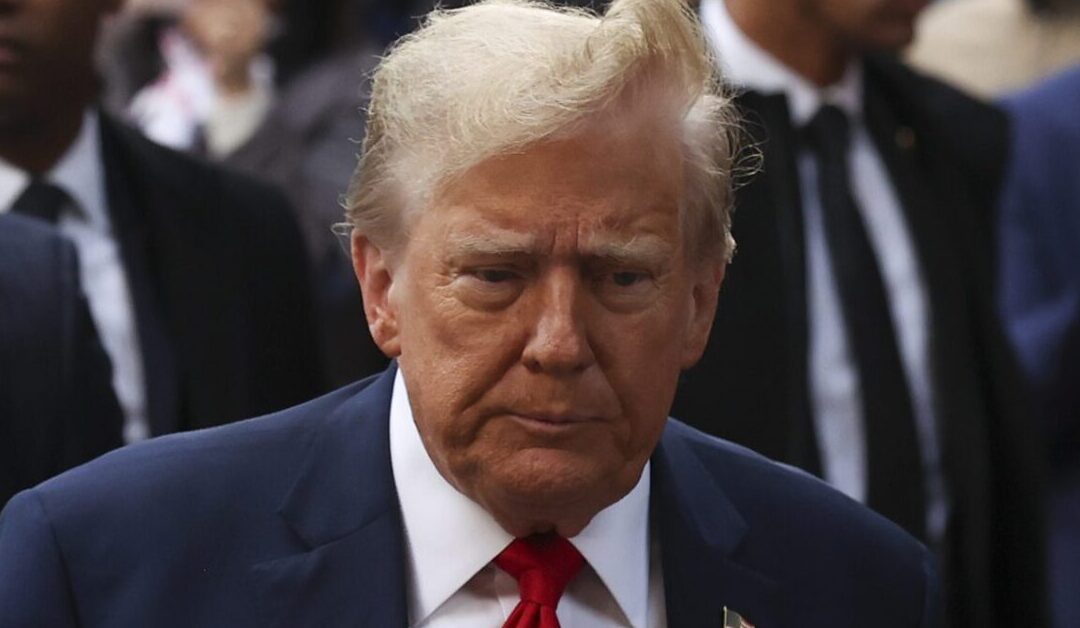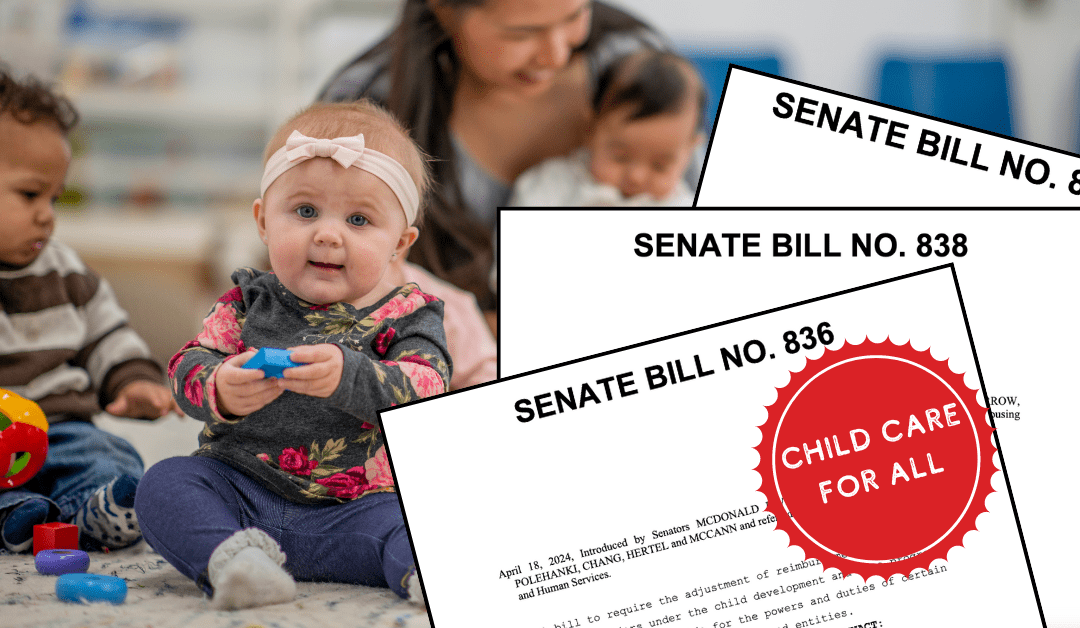
In this image from video released by the House Select Committee, an exhibit of an email by Greg Jacob, who was counsel to former Vice President Mike Pence, is displayed as the House select committee investigating the Jan. 6 attack on the U.S. Capitol holds a hearing Thursday, June 16, 2022, on Capitol Hill in Washington. (House Select Committee via AP)
The third public hearing, which took place Thursday, focused on efforts by former President Donald Trump and his allies to pressure Vice President Mike Pence into overturning the election.
By Nikoel Hytrek
Former Vice President Mike Pence had no authority to overturn the results of the 2020 presidential election, and his refusal to do so at former President Donald Trump’s direction put him in direct danger on Jan. 6, 2021.
That was the main argument in the third hearing of the US House Select Committee investigating the Jan. 6 attack on the US Capitol, which took place Thursday.
Using testimony from Greg Jacob, former counsel to Pence, and former federal Judge J. Michael Luttig, as well as recorded depositions, video from the attack, and emails obtained in their investigation, the Committee laid out evidence of the former president and his lawyer John Eastman’s repeated attempts to convince Pence and his staff to delay or halt the certification of the election.
Here are the big takeaways from the third hearing:
1 – Trump and Lawyer John Eastman Were the Only Ones Who Thought the VP Had Legal Authority to Change the Election’s Outcome — and Even Eastman Had Doubts
Testimony on Thursday revealed that every legal expert who looked at or heard about the scheme to overturn Trump’s loss in the 2020 election said there was no legal authority for Pence to either approve alternate electors, or send the results back to states to recertify. Even former Trump lawyer Rudy Giuliani privately appeared to doubt the scheme would hold up in court.
Eric Herschmann, a former White House attorney who defended Trump at his first impeachment trial, said in a pre-recorded interview that attorney John Eastman had described his idea for overturning the election via the vice president.
“And I said hold on a second. I want to understand what you’re saying. You’re saying that you believe the vice president, acting as president of the Senate, can be the sole decision maker as to, under your theory, who becomes the next president of the United States,” Herschmann said. “And he said yes. And I said are you out of your effing mind, right? And I — you know, that was pretty blunt. I said you’re completely crazy. I said you’re going to turn around and tell 78-plus million people in this country that your theory is – [that] this is how you’re going to invalidate their votes, because you think the election was stolen?
“And I said they’re not going to tolerate that. I said you’re going to cause riots in the streets. And he said words to the effect of, there has been violence in the history of our country, Eric, to protect the democracy or protect the republic.”
Pence’s former attorney, Greg Jacob, described Eastman actually agreeing that the vice president lacked the authority as well.
“When I pressed him on the point, I said ‘John, if the vice president did what you’re asking him to do we would lose 9 to nothing in the Supreme Court, wouldn’t we?’” Jacob told the Committee. “And he initially stated, ‘Well, I think maybe you’d only lose 7-2’ and after some further discussion acknowledged, ‘Yeah, you’re right we would lose 9 to nothing.’”
Jacob also told the committee that Eastman acknowledged, in front of Trump on Jan. 4, 2021, that the plan violated the Electoral Count Act.
Luttig, a widely respected conservative judge, added: “There was no support whatsoever in either the Constitution of the United States, nor the laws of the United States, for the vice president, frankly ever, to count alternative electoral slates from the states that had not been officially certified by the designated state official in the Electoral Count Act of 1887.”
If Pence had gone through with Trump’s “orders,” Luttig continued, it would have “plunged America into what I believe would have been tantamount to a revolution within a constitutional crisis in America.”
2 – Pence Never Believed He Had the Authority to Change the Election Results
Jacob testified that Pence was called to the Oval Office the day before the Capitol attack. In that meeting, reporting from Bob Woodward and Robert Costa in their book “Peril” revealed, Trump tried to talk Pence into overturning the election results, emphasizing how powerful it would make him.
Woodward and Costa’s reporting showed Pence refused, saying he didn’t think a single person should have that authority. After that, Trump reportedly said, “I don’t want to be your friend anymore if you don’t do this.”
“I don’t want to be your friend anymore if you don’t do this.”
Trump to Pence, in the Oval Office
Jacob confirmed that Pence never wavered from his position that he could not and should not do what Trump and Eastman suggested.
“The vice president’s first instinct,” he recalled, “when he heard this theory was that there was no way that our framers, who abhorred concentration of power, who had broken away from the tyranny of George III, would ever have put one person, particularly not a person with a direct interest in the outcome because they were on the ticket for the election, in a role to have decisive impact on the outcome of the election.”
In a video clip shown Thursday, Marc Short, Pence’s former chief of staff, said the vice president directly told Trump he couldn’t and wouldn’t do it “many times.”
On Jan. 6, Trump called the vice president. People who overheard that call, including Ivanka Trump, told the Committee that Trump’s tone got heated and he accused Pence of being weak.
3 – Many People Knew Trump’s Pressure Campaign Could Lead to Violence
After staff released a memo falsely saying Pence agreed he could change the election, Marc Short said he talked to Pence’s security detail on Jan. 5.
“My concern was for the vice president’s security and so I wanted to make sure the head of the vice president’s secret service was aware that likely as these disputes became more public that the president would lash out in some way,” Short said.
The following day, Trump’s tweet about Pence during the riot appeared to cause the crowds outside and inside the Capitol to surge. Rioters also began explicitly chanting for violence against the vice president, calling him a traitor to the country.
“It’s real simple,” one Trump supporter said in a video shown by the committee. “Pence betrayed us, and the president mentioned it like five times when he talked.”
Former White House Deputy Press Secretary Sarah Matthews told the Committee: “When that tweet, the Mike Pence tweet, was sent out I remember us saying that that was the last thing that needed to be tweeted at that moment. The situation was already bad, so it felt like [Trump] was pouring gasoline on the fire by tweeting that.”
Within minutes after Trump’s tweet went out, Secret Service rushed Pence to a secure underground location. The route they took brought them within approximately 40 feet of the mob, the Committee showed.
Recent FBI testimony from an informant also revealed that members of the Proud Boys would have killed Pence if given the chance.
According to Jacob, while sheltering in the secure location, Pence refused to get into a car because he didn’t want the American people to see the vice president fleeing the Capitol.
4 – After the Attack, Eastman Again Asked Pence to Break the Law
Jacob also testified that after the riot was over and Congress was back in session to certify the results, Eastman emailed him to again ask that Pence send the votes back to the states.
“He emailed me to point out that, in his view, the vice president’s speech violated the Electoral Count Act. That the Electoral Count Act had been violated because the debate on Arizona had not been completed in two hours,” Jacob said. “Of course, it couldn’t be since there was an intervening riot of several hours.”
He said Eastman argued that since the time given to the riots would not be held against the Electoral Count Act, the law must not be seen as overly important. Therefore, could the vice president “consider one more relatively minor violation” and adjourn the joint session for another 10 days?
“In the long term, Jacob said, “we would have established a situation where a vice president would have asserted that one person could have the authority to determine the outcome of an election, which is antithetical to everything in our democracy.”
5 – The Threat Isn’t Over
Luttig, the other witness in Thursday’s hearing, wrote previously that the threat to American democracy is far from over. The Committee asked him to explain his point of view.
“Today, almost two years after that fateful day in January 2021, and still Donald Trump and his allies and supporters are a clear and present danger to American democracy. That’s not because of what happened on January 6,” Luttig said.
“It’s because, to this very day, the former president, his allies and supporters pledge that in the presidential election of 2024, if the former president or his anointed successor is the Republican party candidate, and [they] were to lose that election, that they would attempt to overturn that 2024 election in the same way they attempted to overturn the 2020 election.”
“I don’t speak those words lightly. I would have never spoken those words, ever in my life, except that that’s what the former president and his allies are telling us,” he continued. “The former president and his allies are executing that blueprint for 2024 in plain view of the American public.”
Politics

SEIU workers ahead of NFL Draft: We are ‘the backbone of Detroit’
BY KEN COLEMAN, MICHIGAN ADVANCE MICHIGAN—A day ahead of the National Football League annual draft being held in Detroit, Service Employees...

Investigator says Trump, allies were uncharged co-conspirators in plot to overturn Michigan election
DETROIT—A state investigator testified Wednesday that he considers former President Donald Trump and his White House chief of staff to be uncharged...

Michigan Dems introduce ‘Child Care for All’ legislation to lower costs for families
Lawmakers say Michigan is facing a ‘child care crisis.’ But a series of bills introduced this month would help to make child care (much) more...
Local News

The 10 best burger joints in and around Lansing
Warning: Do not read this list if you missed lunch or you will find yourself hopping in the car to drive to these best burger joints in Lansing. ...

10 unique wedding venues in Michigan to suit every kind of couple
From a distillery in Detroit to a summer camp, we’ve rounded up some of Michigan’s most unique wedding venues. Of all the elements you need to...





